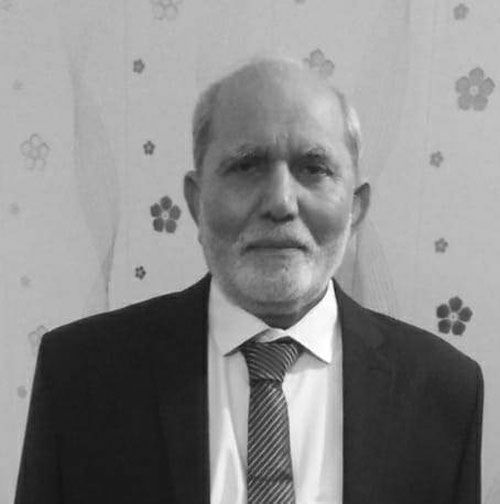Why knowing India is essential ?
THE general impression in the Pak media is that Indian politics is probably another name for the BJP and the Congress, so in general, the focus of all our research efforts is limited to only these two parties.
As a student of Indian domestic politics, according to me while this impression can only be partially validated, otherwise, the fact is that only 25 to 30 per cent of Indians are inclined towards the Congress (Soft Hindutva) and about 30 to 35 per cent of Indian voters are fully supportive of the RSS and the BJP and have “blind faith” or “blind hatred” in this matter.
The remaining 35 to 40 per cent are Indians, with the “overwhelming majority” coming from southern, eastern and northeastern India, namely Tamil Nadu, Kerala, Andhra Pradesh, Telangana, Karnataka, Pondicherry, Assam and West Bengal and the emotional attachment of the residents here to these two parties is nominal.
That is why they are largely ignorant of the real nature of the Kashmir issue.
In their view, the Pakistani position is that they want to occupy India-occupied Jammu and Kashmir at all costs. They do not know much about the resolutions passed by the United Nations.
Therefore, if Pakistan formulates a coherent and serious strategy, a lobby can be created in these relatively neutral circles to pave the way for a solution to the Kashmir issue.
As much effort as we put into making the United States, Europe and the rest of the outside world our ally, if we spend even 50% of it in this context, we can potentially achieve positive results based on which Pakistan and concerning a just solution to the Kashmir dispute, a soft spot could be created in these constituencies.
It is noteworthy that at present 16 Indian states are governed by BJP and its allies.
Similarly, in these five states of Chhattisgarh, Jharkhand, Maharashtra, Punjab and Rajasthan, Congress is in power on its bill or through allies. Regional parties are in power in the remaining Indian states.
YSRC Party in Andhra Pradesh, Aam Aadmi Party in Delhi, CPIM in Kerala, Biju Janata Dal in Orissa, Sikkim Democratic Front in Sikkim, AIADMK in Tamil Nadu, Telangana Rashtriya Samiti in Telangana and West Bengal have a Trinamool Congress government.
In many other states where the Congress or the BJP is part of the coalition government, regional parties hold a large number of seats.
It may be recalled that the total number of seats in the Indian Lok Sabha is 545 out of which 131 seats are reserved for Scheduled Castes (84) and Scheduled Tribes (47).
In this context, the real nature of the Kashmir issue in the context of Pak-India relations could be highlighted to the above-mentioned Indian regional parties so perhaps even in the overall situation of the region, lasting peace and development and cooperation can be established on a regional basis and radically changed the situation in the whole region.
In reviewing this, it should be borne in mind that while observing Pak-India relations, it is imperative that “geography” should be kept in mind as geographical facts are in some aspects more important than history.
That’s when you see and hear the “stereotype” of analysis and sometimes it seems that as much as we mention India in our writings and speeches without sufficient knowledge, even if some research is done in this regard, the scenario can be clarified.
Unfortunately, the vast majority of experts working at the research level in India do not even know the names of all the states of India, so our research efforts do not prove to be significantly fruitful.
Former Indian Prime Minister Vajpayee, for example, is often quoted as saying; Friends can be exchanged, but not neighbours.”
In short, if we look at the whole situation, it can be said that ignorance of Indian geography is largely responsible for the whole situation.
In any case, it is perhaps somewhat encouraging to some extent that how steps are being taken to raise the Kashmir issue and the Junagarh dispute with the personal interest of Prime Minister Imran Khan and National Security Adviser Moeed Yousuf is gratifying.
The release of a new map of Occupied Kashmir was also a good move in this regard.
Thanks to these efforts, a few weeks ago, The American think tank “Freedom House” has unearthed India’s claims of so-called democracy and secularism.
The latest report of the 81-year-old Freedom House mentions human rights violations in India and the report separates the occupied Jammu and Kashmir from the map of India.
The think tank has compiled a “Global Freedom Index” of all 210 countries, removing India from the category of “independent countries” and listing it as a “partially independent” country while occupied Kashmir has been declared “not free”.
In the latest report, India’s ranking on human rights and democratic values has dropped five places to 88th.
The report ranks India 34 out of 100 in terms of political freedom and only 33 out of 100 in terms of civil rights.
According to the report, the worst violations of the rights of workers and minorities were committed during the corona epidemic due to poor policies of the Modi government.
According to Freedom House, the RSS and the BJP are pushing India towards aristocracy.
The report shares the data of Occupied Kashmir and India separately, according to which the number of Occupied Kashmir in political freedom is seven out of 100 while the number of citizens is 19 in Independence.
It should be kept in mind that Elena Roosevelt, the founder of Freedom House, was the wife of US President Franklin D Roosevelt during World War-II.
—The writer is a Researcher in Centre for South Asian Studies, Punjab University Lahore.










